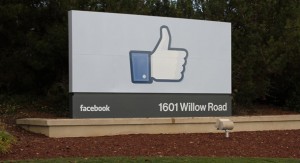Prior to last weeks GDP figures for the March 2011 quarter, I had been talking to our clients,...
Users are Facebook Advertising by Proxy
 What happened?
What happened?
A complaint was lodged regarding the posts by users which 'contained sexism, racism and other forms of discrimination' as well as depictions of irresponsible and excessive drinking on the official Facebook pages of VB and Smirnoff that could be consider Facebook advertising.
The question was raised on the accountability of corporations to moderate their public Facebook pages, as posts could be considered advertising in an unethical manner.
Smirnoff responded, asserting that due to users already knowing about the brand and thus 'liking' the page it did not constitute as 'advertising' but only a platform to engage with people. Furthermore, the opinions of users are not representative of the brand itself.
The Advertising Standards Board (ASB) made a potentially industry changing ruling that the Facebook page of an advertiser, in this case Smirnoff, is a marketing communications tool. Therefore all content available would be needed to moderated under Advertiser Codes of Ethics, though it dismissed claims of rules being breached due to sexist, racist or other forms of discriminating content.
How will this effect brands?
This poses a few important implications on the social media strategies of companies and brands, in particular the PR side of activities. Since social media has been long considered a medium for open communication between brands and their users, and given the judgement by the ASB, this openness might be disappearing in the future due to stricter moderation and a spotlight put on brands to operate ethically within legislation.
It will also add an extra layer of complexity due to the power of governments and where their jurisdiction ends. For instance the global 'Coca-Cola' Facebook page has over 46.7 million 'Likes' compared to the 'Coca-Cola Australia' which has merely 845 thousand in comparison. Would multinational corporations need to manage multiple accounts, which means moderating thousands of comments a day and can this be automated?
Either way as a greater number of the population connect online both businesses and brand will need to learn to adapt quickly to this extremely dynamic digital landscape. However, given this ruling, is censorship really the right way for social media to progress? Should governments intervene or can they rely on consumers to decide the fates of organisations based upon their reactions on the activities of the companies they follow?


